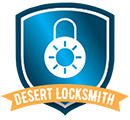Technology has developed to such a stage that you can control every aspect of your home remotely with the help of ‘smart devices’. Devices like smart door locks, thermostats, lawnmowers, vacuums, and many more help us conserve energy and automate many of the chores that we would need to find time to do.
When it comes to security, smart devices like door locks, cameras, and AI-enabled face recognition software have been a great help to keep homes safe and secure. However, choosing one that suits your needs is something people do not think much about. In this blog, we’ll see the various home security solutions out there and which would be the most ideal for you.
Types of Home Security Systems
DIY Home Security Systems- These systems are easy to install and monitor. It could be a set of CCTV cameras for your premises which you can install yourself or a set of smart locks that you can install to your door yourself without the need of a professional locksmith.
As and when you need it, you can increase the number of CCTV cameras or sensors, but the catch is you are on your own- you won’t get professional help whenever you need it. Though Doing-It-Yourself is easy and cost-effective, it may not always work, especially if you need to keep your eyes on large premises and if you need foolproof security. Some models of DIY home security systems give you an alert when someone comes or goes to your premises; it is then up to you to check it and do the needful. However, the alerts may not be enough if you aren’t online temporarily or if you aren’t in a position to contact someone to check the premises in your absence. Here is where you need professional home security systems.
Professional Home Security Systems- Most DIY home security systems are installed using double-edged tape after reading and understanding a manual. For bigger homes with greater security needs, professionals are needed to install, monitor, and take action on security threats on the property.
These security systems don’t come cheap- you have to ink a contract with the provider for a set period and if you want to terminate the contract, you will have to pay a large sum for cancellation.
How to streamline home security systems
Usually, most smart home security systems connect with your premises’ Wi-Fi. It could include remote monitoring sensors, motion detectors, CCTV cameras, smart locks for doors and windows, and other security systems. Many security service providers use Z-wave or Zigbee technology that mimics Wi-Fi and can be powered by small batteries.
These home security systems work in sync with each other. For instance, if the neighbor’s dog has strayed into your yard, the security system will let you know from where and when he came. This will help you to secure your premises in such a way that no one can breach your home’s security.
Also, many home security systems come with cloud storage of CCTV camera footage. This gives you a good reference point when it comes to securing your home and recording who came when.
How much do these home security systems cost?
This depends on the scope of work. If you are using a DIY home security system, this is relatively inexpensive. However, you will need to give personal attention to your security system updates. These DIY systems come with a fixed cost and sometimes also a subscription service for after-sales support.
On the other hand, professional home security systems require locksmiths and other professionals to install, monitor, and take action when needed. This hikes up the cost significantly. Though you may be paying a monthly sum for this system, you can have peace of mind that there is someone somewhere taking care of your valuables.
Summing Up
With the number of crimes increasing regularly, installing a home security system can help you secure your premises well. If you need to secure a large area, it makes sense to invest in a professional service. For smaller budgets and spaces, DIY home security services may work well.

